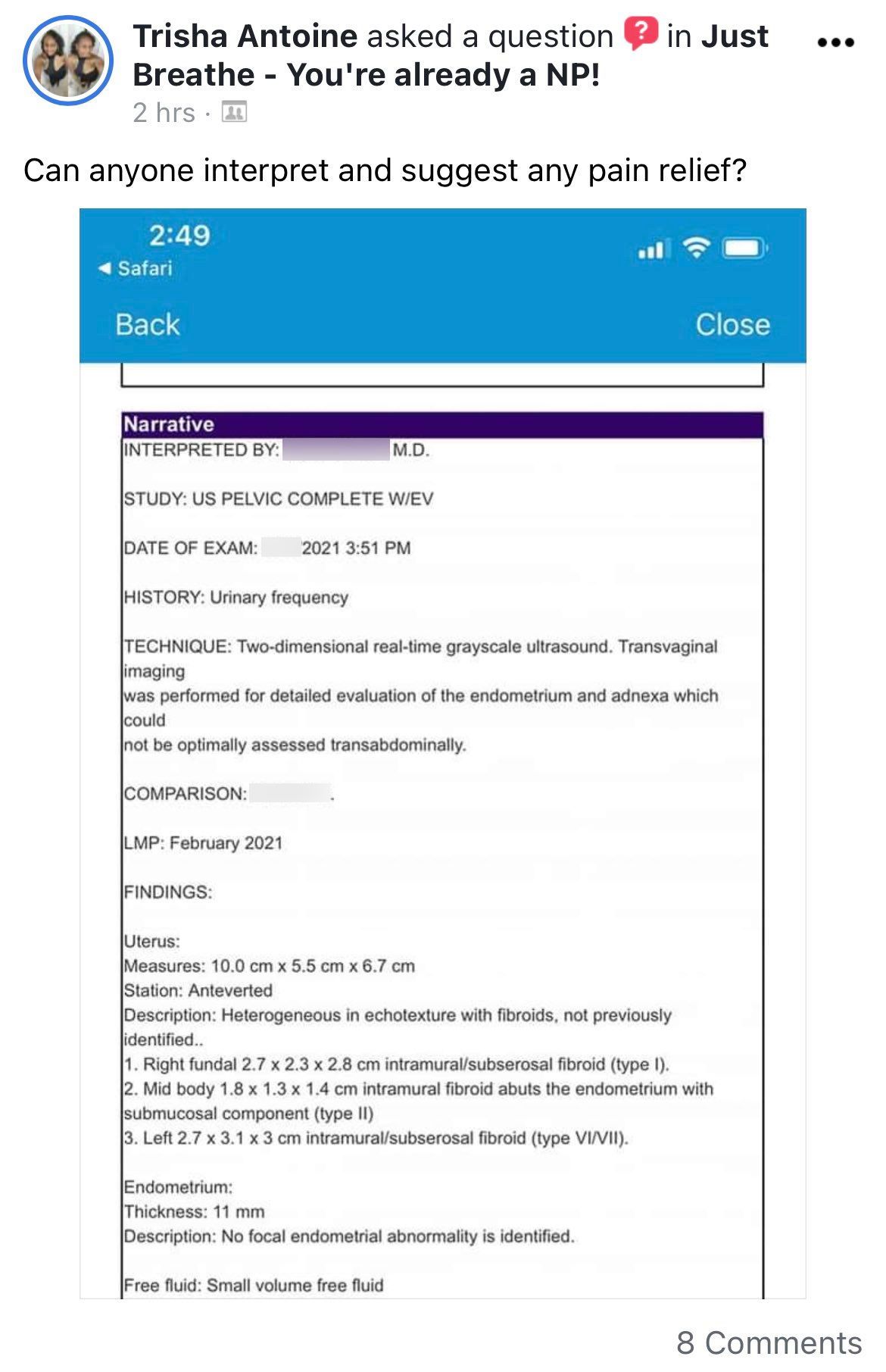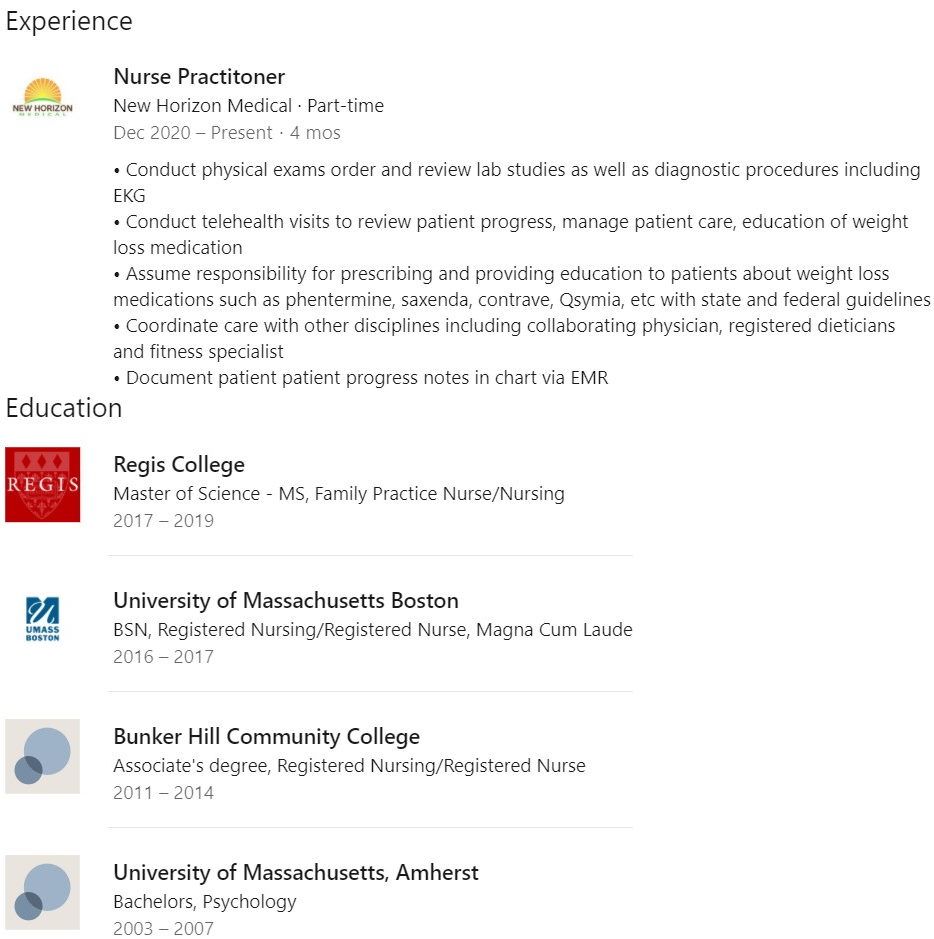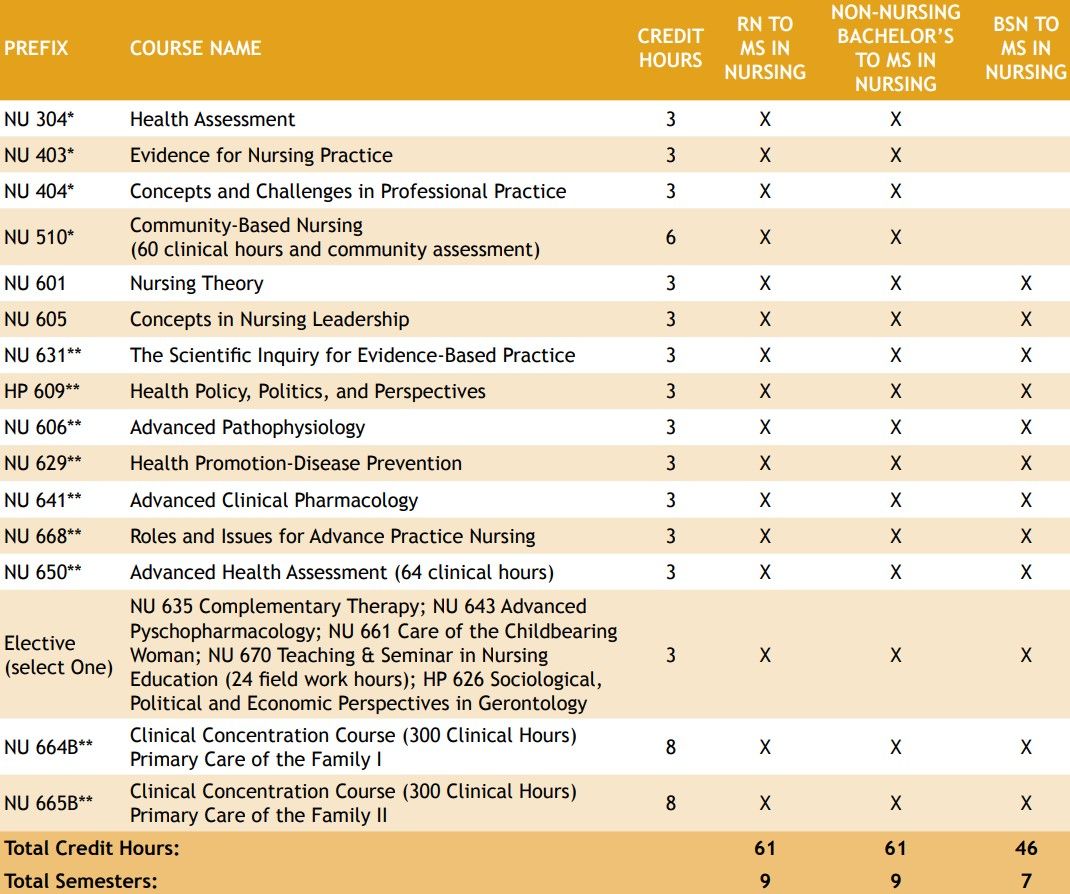NP has no clue about imaging results, posts entire radiology read online for help
💬 comments
Can anyone interpret the interpretation?

Just when we thought that a midlevel couldn't set the bar at MidlevelWTF any lower than it already is, across our desk comes this specimen. Guess what physicians do when they don't know what to do with the results of an imaging study? They might ask the radiologist, they might ask the surgeon in charge of the organ system in question (if it's a surgical problem), or they might do some research using a reputable reference source. What they don't do, however, is post, verbatim, almost the entire text of the radiology read in a Facebook group asking for help in a way that 1) strongly implies that you don't have any idea what you are doing, and 2) includes potentially HIPAA-protected information such as the name of the radiologist who read the study and the date of service (which we have censored here).


We have to wonder, do they teach anything about medical ethics, professionalism, and the basics of HIPAA at Regis College? Based on the titles of the courses above, we're going to hazard a guess that the answer is no. We can only hope that NP Trisha Antoine's current employer, New Horizon Medical in Massachusetts, provided a basic orientation to HIPAA and patient privacy before starting. Did the patient consent to having the radiographic details of their uterus posted online?
In any case, we're not even sure why this NP is asking for someone to "interpret" this already-interpreted pelvic ultrasound study. Fucking hell, what do radiologists get paid to do? Maybe it needs to be translated to another language? And why was a pelvic ultrasound ordered for urinary frequency?! Nevertheless, anyone with functioning eyes and a high school-level reading comprehension level can read clear as day that there are several uterine fibroids present. These are by no means an uncommon or exotic pathology in women, and being able to recognize their presentation and initiate appropriate workup and management prior to OB/GYN referral is well within the purview of family medicine. Hell, if you really had no idea where to start, there's an UpToDate article with a nauseating amount of detail about uterine fibroids, in addition to an excellent AAFP review article that specifically discusses available therapeutic and treatment modalities. In other words, there's simply no reason to post, wholesale, the gory details of a patient's radiographical study online. Patients deserve better than a Facebook consult, and they certainly don't deserve their privacy rights under HIPAA to be violated.